The Legislature's Dreary 'Combat' with Caddle Shadows

Already made up of bottom-feeding wise guy wannabes and would-be tough guys, New Jersey politics absorbed another injection of underbelly opportunism and lack of transparency titillation with the advent of super PACs (political action committees) enabled by the 2010 Citizens United Supreme Court decision.
A longtime vocal advocate for greater transparency, Jeff Brindle, executive director of the state Election
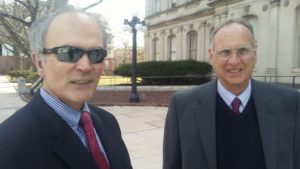
Law Enforcement Commission (ELEC), notes that reforms to eradicate PAC disclosure evasion don't require a federal Supreme Court overturning of Citizens United.
"The thing that's important 12 years on now from [the Citizens United decision] is that independent groups disclose their contributions and financial activity," Brindle told InsiderNJ. "We need to have legislation that requires the financial disclosures of independent groups."
The creepy, crummy factor went up even more last month when one of the NJ operators of those PACs surfaced as an admitted murderer, which merely underscored the argument that undisclosed and unaccounted for monies and bodies in politics leaves ajar the door to increasing shadowy behaviors and evil deeds.
Sean Caddle, the New Jersey-based political consultant who ran the Committee for Economic Growth and Social Justice, admitted hiring two men to kill a longtime associate who had worked for him on various political campaigns, U.S. Attorney Philip R. Sellinger announced on January 25th.
"All this talk about people being shocked," a Hudson source told InsiderNJ. "We knew what Sean what
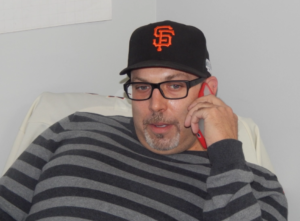
Sean was about."
At the very least, he operated as a so-called janitor, that mop and pail political type, tasked with always staying a body or two removed from the principal of any campaign, in the name of maintaining insulation between himself and his shadowy nature, and the supposed honorable condition of a candidate for office.
The observation suggests that politicos kept Caddle around precisely because they knew they might need dirty work done. That dingy, maggots-under-the-rotten-woodpile quality, out-of-way and undisclosed, resided - as it turned out - in a nightmarish environment, relative to the world of regular law abiding taxpayers and voters. Surely, there was hope. Most exclusively associated with so-called "dark or hidden money" politics, Caddle confessing to engineering the murder of a business associate would undoubtedly prod the legislature to move on - and the governor sign into law - vigorous new disclosure measures governing PACs.
Well, not really.
In fact, not so fast. What's more likely is just another chapter in state representative government's long, tortured self-interested relationship with super PACs and its own janitorial efforts to look like its moping a mess no one - Brindle's entreaties notwithstanding - quite cares enough about to wholly cleanse.
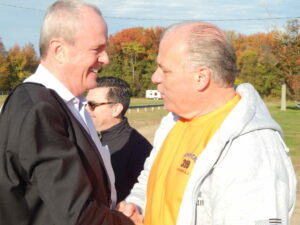
Remember, the legislature initially moved on holding shadowy PACs accountable - and making donor lists public - not out of any abiding public interest but because then-Senate President Steve Sweeney (D-3) - locked in a backroom intraparty swamp war - wanted to humiliate Governor Phil Murphy by forcing his affiliated PAC, New Direction New Jersey, to disclose its donors.
Hurt feelings - not murder; a political gambit, not justice - motivated Trenton Democrats to move.
Just as quickly, Murphy shut down the effort.
"Sen. President Steve Sweeney (D-Gloucester) on Wednesday announced his support for legislation that would make several changes to campaign finance laws, including a requirement that issue-advocacy 501(c)4 and 527 organizations disclose their donors. These are organizations that advertise and actively support or work against candidates or public ballot questions. Sweeney also wants to further strengthen the measure to include legislation or regulations and make the disclosure rules retroactive to January 1, 2018. Currently, these organizations need not disclose their sources of funds as long as they do not spend more than half their money on election-related communications."
The ignoble collision produced a flicker of nobility in Senate Bill 1500:
“In one respect, this is designed to combat the effects of the U.S. Supreme Court’s Citizens United
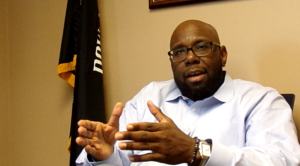
decision, which essentially allowed corporations and super PACS to secretively pour unlimited amounts of money into campaigns, essentially stifling the voice of the average citizen,” said state Senator Troy Singleton (D-7). “This has become an impediment to the democratic process. By requiring independent expenditure committees to report where their money is coming from and what they’re spending it on, we can pull back the veil of secrecy that Citizens United effectively cloaked over the election process.”
Suddenly motivated to do good by exposing the governor as bad, the George Norcross wing of the party pretzeled progressives who would have craved transparency, but not at the expense of their progressive governor.
Murphy tomahawked key parts of the bill in the form of a conditional veto, producing the following statement by Singleton and then-Assemblyman Andrew Zwicker (D-16):
“To say we were disappointed to learn that the Governor planned to conditionally veto this landmark legislation via press reports, before hearing from the administration, is a severe understatement. However, upon reading the conditional veto today, we are truly flabbergasted by the explanation presented.
“The Governor says that this bill ‘falls short’ of the goal to bring greater transparency to our political process. That is a gross misrepresentation of months, and frankly, years of hard work by not just those of us who prime sponsored this legislation, but the highly esteemed Executive Director of the Election Law Enforcement Commission, Jeff Brindle, who has long championed this issue. The only thing that 'fell short' today was the Governor’s will to truly address the behemoth of dark money that has eroded the public’s trust in our government and the political process. While we are pleased we were able to draw attention to this important issue, and elevated the conversation about the need for true reform in this area, the Governor’s actions today are, ironically, an example of politics at its worst.”
The signed legislation did achieve the requirement of social welfare 501(c)(4) nonprofits and so-called 527 political organizations to publicly report their donors that contribute more than $10,000, as well as spending of more than $3,000 on elections and political activity. But a federal judge later made permanent a ban on the "dark money" law in a court filing, "bringing to an end two out of three lawsuits that challenged the law as unconstitutional," according to NorthJersey.com.
The whole issue looked dead at that point.
Now, there's Caddle and his confession to murder, in a case - to be clear - that may not be related to PACs.
Just the prime backroom players of them.
And the issue still looks dead.
"What we've pushed for for years is that independent outside groups disclose their donors," Brindle told InsiderNJ.

The ELEC executive director said he's hopeful of a new session under the leadership of Senate President Nick Scutari (D-22), and the continuing efforts of a perennially good government lawmaker like Zwicker. Still, "Sometimes we feel like that," he confessed when InsiderNJ asked him if he feels like a voice in the wilderness at ELEC.
A voice in the wilderness, in the swamp.
InsiderNJ spoke with Zwicker, who provided some context as to why the PAC donor disclosure effort doesn't occupy condition red status.
The country's democratic experiment teeters on the brink, he pointed out.
The courts threw out the disclosure requirement just before the pandemic.
Later, at the prompting of then-President Donald J. Trump, anarchists raided the U.S. Capitol in an
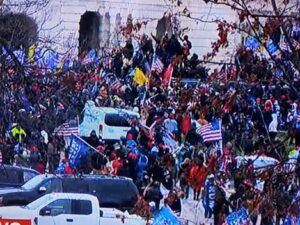
attempt to subvert Vice President Mike Pence's and Congress' certification of the 2020 presidential election, which Trump lost to Joe Biden.
"What happened between then and now is the previous president with the great lie, called into question the integrity of our elections in an unprecedented way," said Zwicker, now a state senator.
He said "dark money" remains "an enormous problem."
But the perfect storm of election subversion and election reporting forced another crisis response.
"Over the last couple of years I have been personally involved in examining vote by mail election efforts, to get early voting done, and to fix honest mistakes to the mail-in ballot process," the 16th District senator said.
He wants to make it easier for a voter to cast his or her ballot, and he wants to ensure the timely processing and uniform reporting of election results.
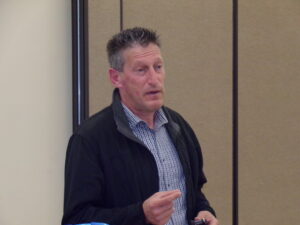
"We want to clean up the technical things so this November elections, we have all this fixed, and we avoid the situation where we have one result and then it switches to another result," Zwicker said. "In my own case, I had lost, and sometime the next day, it changed suddenly. It undermines the confidence of our election process. If we don't have a democracy where people have confidence then the whole country finds itself in a very troubling condition."
Zwicker said those efforts have primarily occupied his and his colleagues' time.
The influence of super PACs and their undisclosed donors pervades.
It's all tied together, he admitted.
But the fight on the elections front - a five alarm fire, as it were, no less horrifying than mobs desecrating the U.S. Capitol on a directive from the losing president - and the legislature's own overall unmotivated sluggishness without a specific self-interested objective, as Sweeney had, for example, not to mention the courts' resistance, presents a legislative focal point and priority, a crisis underlined by the Jan. 6th assault on democracy; Caddle's world, now as then, not as luminous as those unspeakable, incendiary TV images, indeed still half covered in darkness, though no less insidious, in its own way, given the proximity to murder.






